CompTIA’s Workforce and Learning Trends 2021: Accelerating Through the Curve finds that a vastly accelerated pace of change is forcing companies to make a choice. How quickly can they transition from business and workforce continuity to business and workforce innovation — from survival to building and creating? The COVID-19 pandemic put a twist in the path, but companies that accelerate through the curve will build momentum and lean into the future of work and learning.
To do that, companies are renewing their focus on innovative approaches to:
CompTIA’s Workforce and Learning Trends 2021: Accelerating Through the Curve presents a data-driven look at the key developments shaping the future of work and future of learning.
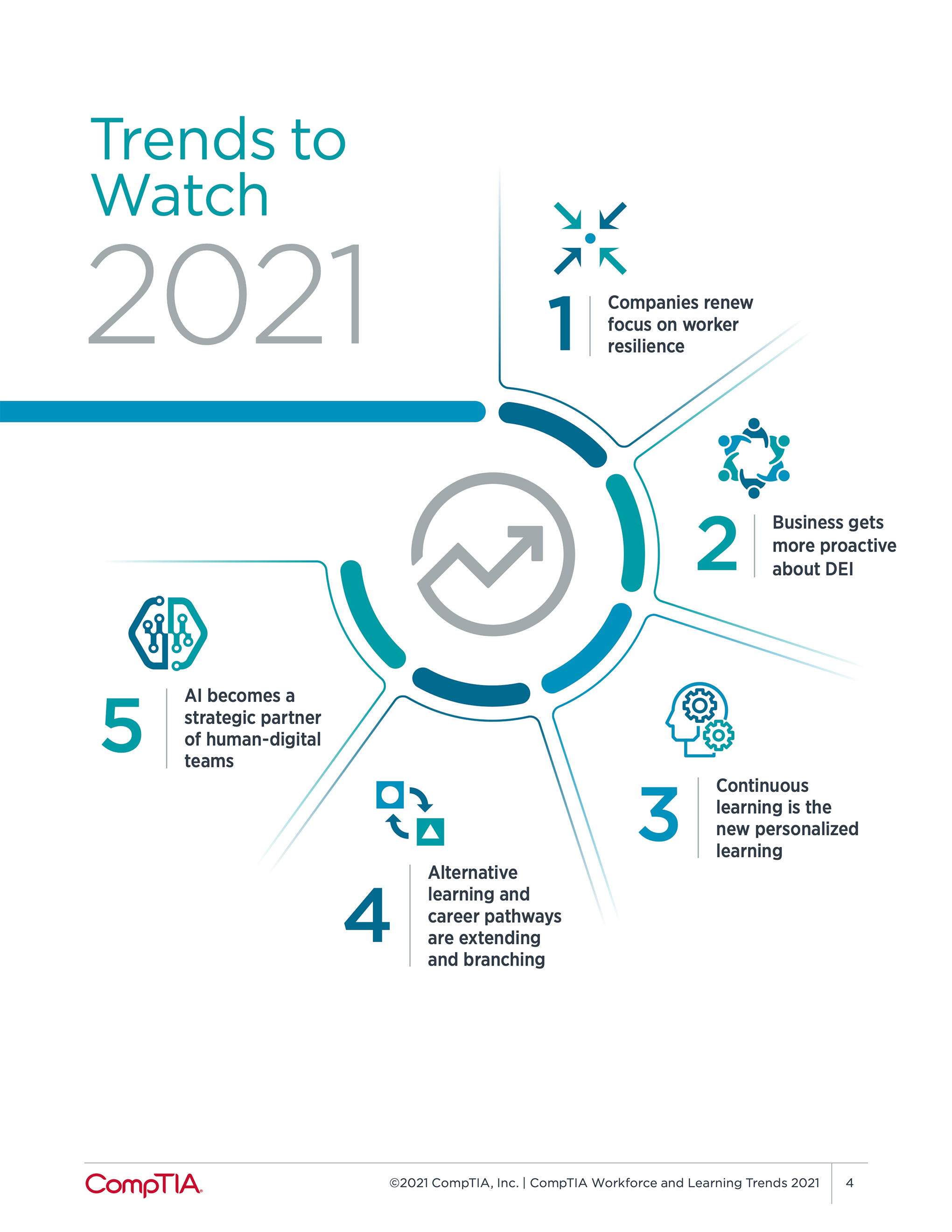
The 2021 CompTIA survey of HR leaders confirms what many other surveys have shown — that the pandemic created broad concern about employee work-life balance, workflows and morale. Looking ahead, 41% say their companies will have a new emphasis on communication and on emerging tech skills for remote work, and 42% expect new efforts on upskilling and reskilling for incumbent employees.
For all the anxiety about needing resilient and agile organizations in recent years, the pandemic response demonstrated that those qualities may have been available all along. Under very difficult circumstances, and in a matter of weeks, workers at many companies stood up entirely new operating models. They built safer socially distanced workspaces, established new workflows for hybrid teams, shifted learning curricula online and, of course, shifted to working from home.
View full report for more detail.
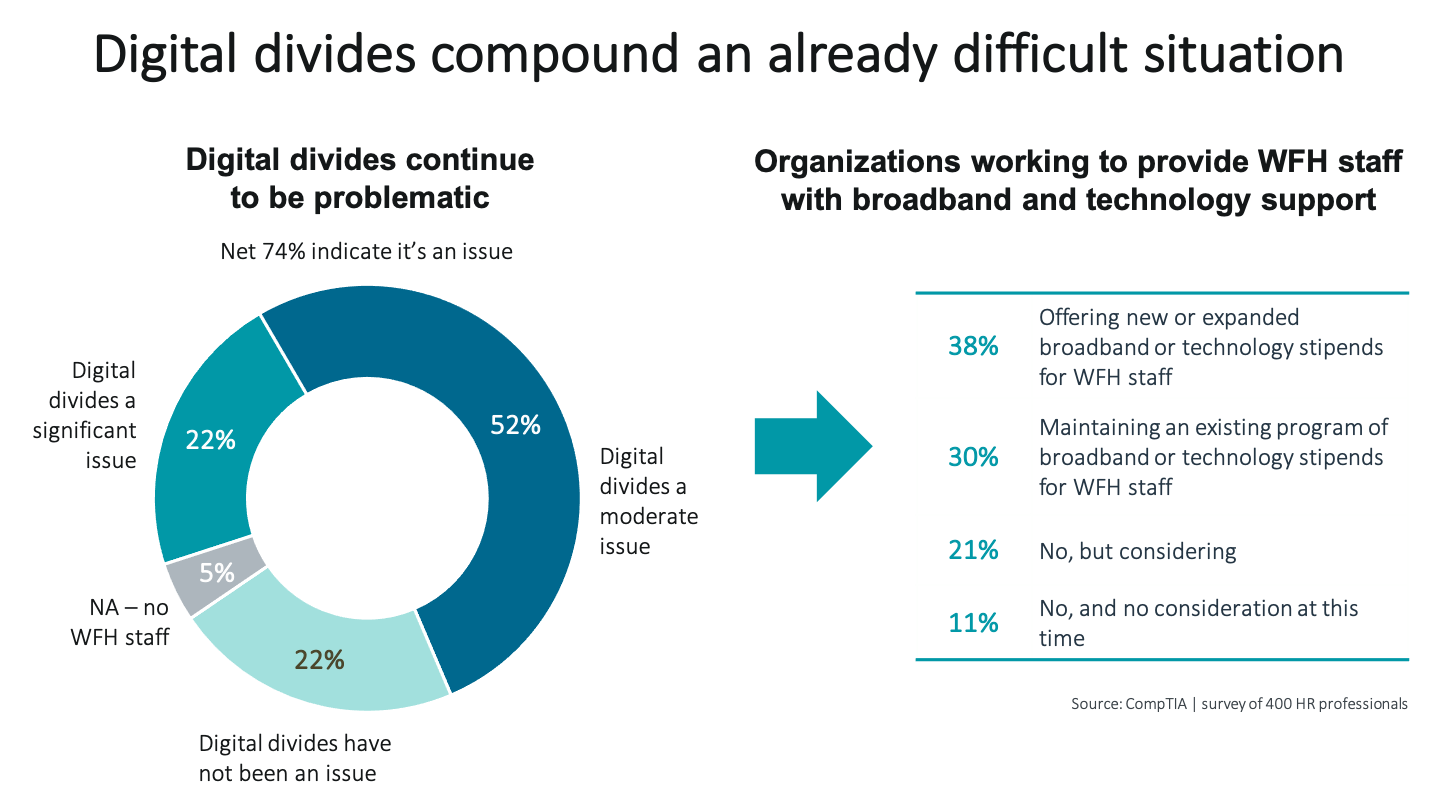
The disruptions caused by the pandemic made inequalities more visible. That, and the long-overdue awakening to systemic racism sparked by countless injustices, are accelerating the movement toward diversity, equity and inclusion in the workplace.
Over half of HR professionals in the CompTIA survey expect their organizations will pursue new initiatives related to diversity, equity and inclusion in the year ahead, and those initiatives are more likely to be intentional and accountable.
Still, businesses are still struggling to operationalize DEI activity. As HR industry analyst Josh Bersin notes in his 2021 predictions, skills in this domain are not widely distributed, and many organizations haven’t figured out what metrics to use.26 Our survey of HR leaders reinforces that.
View full report for more detail.
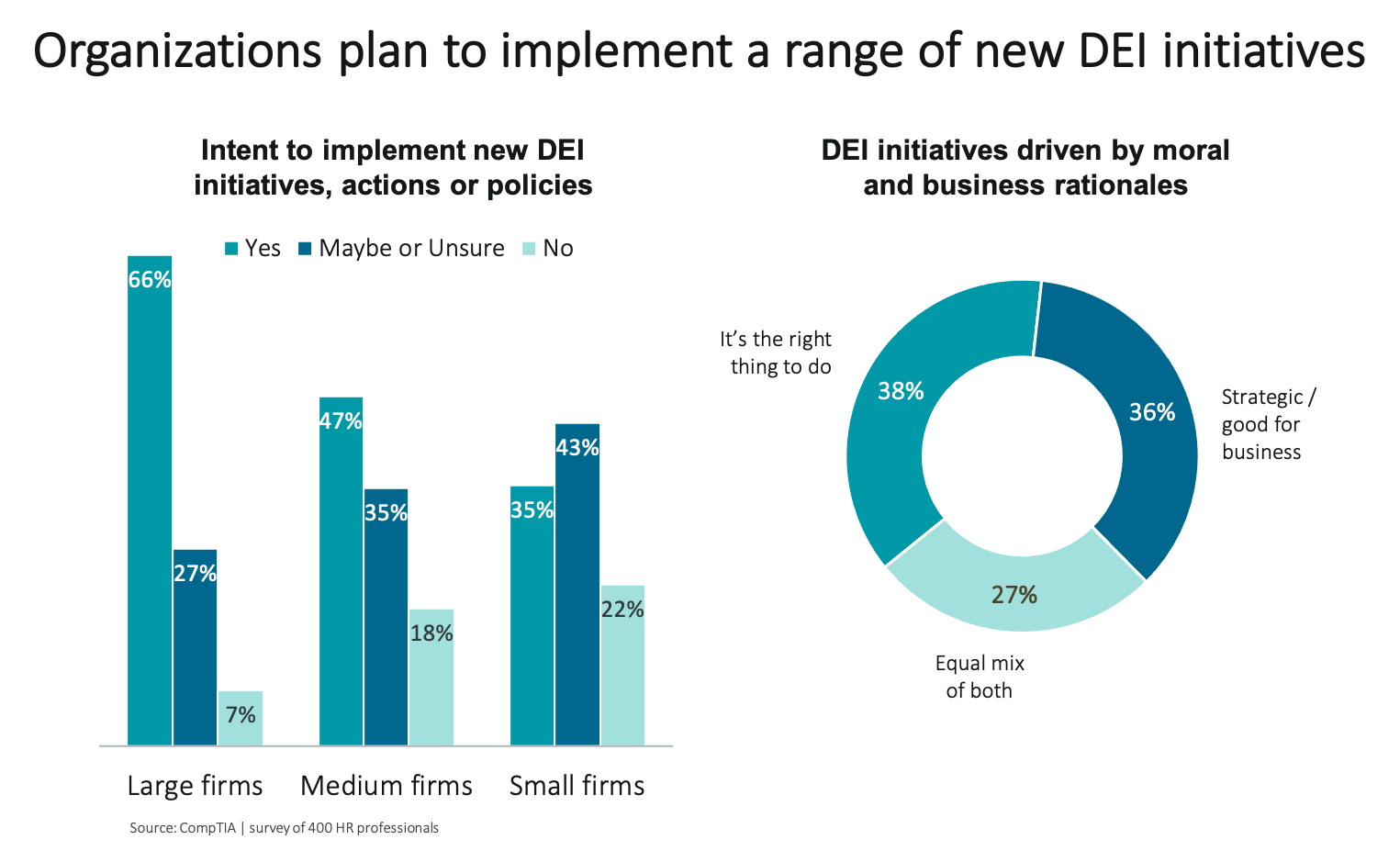
The goal of a learning culture is achieved with high-quality continuous learning that is available anytime, anywhere, for any learning modality.
In our survey, over 75% of HR leaders expect to increase the tools they use to personalize talent development activities, with people from large employers much more likely to say it will increase significantly. Overall, this supports a trend toward delivering personalized experiences to employees. However, our qualitative interviews and research suggest that a lot of what has passed for personalized learning has been just a form of segmentation. It didn’t necessarily allow individual learners to choose what content or paths worked for them personally.
Nor did it allow them to choose when and where they learn, since most training is still delivered as a point-in-time event. A truly personalized experience probably isn’t achievable until employees are in an environment of continuous learning, where they can turn it on like a tap when they need it most.
View full report for more detail.
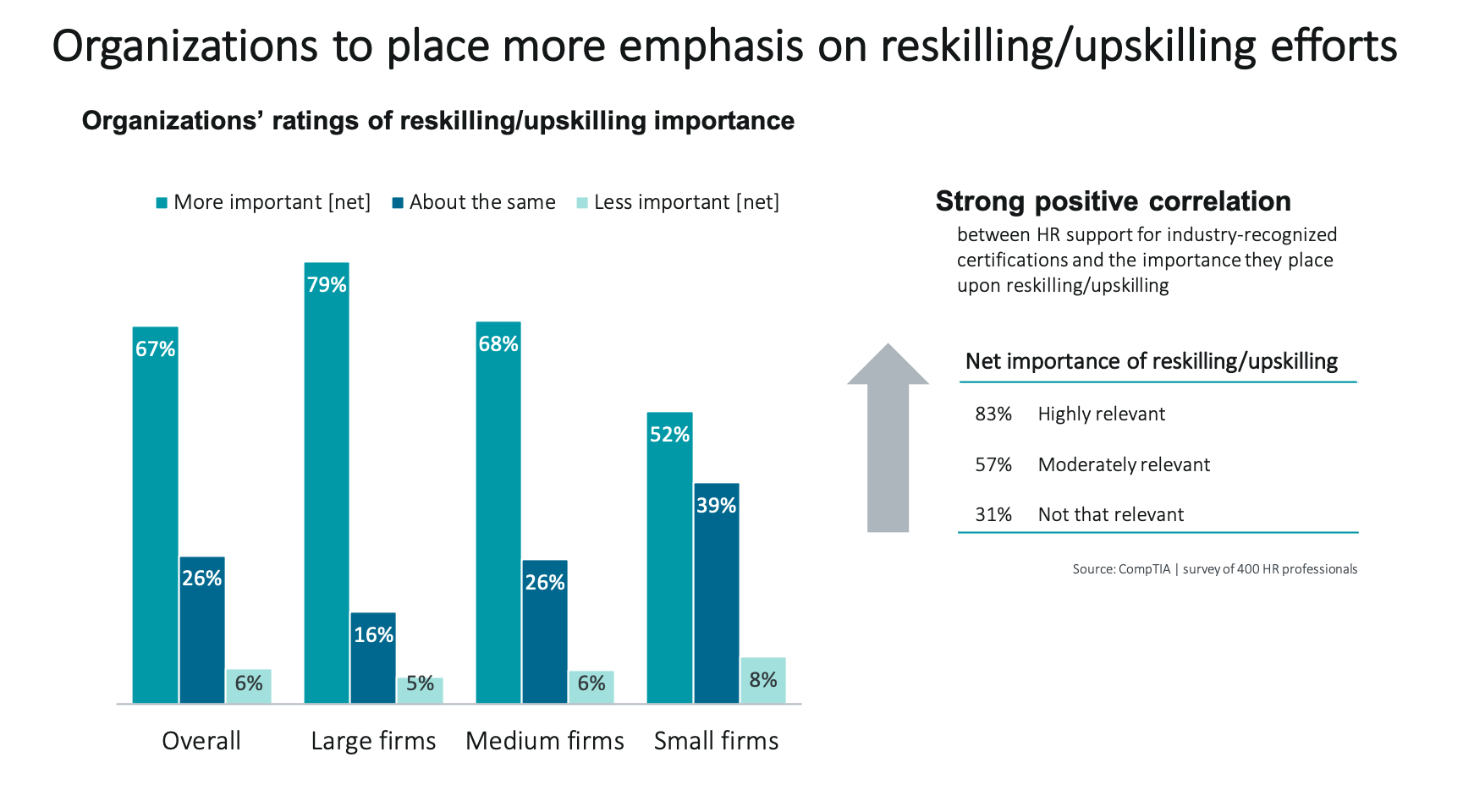
The debate over the future of work confirms the many challenges of navigating an increasingly complex digital world. These forces are driving employers and workers to seek new career on-ramps and models that enable internal mobility.
Employers in CompTIA’s survey continue to seek more on-ramps for new employees and for more effective ways to upskill and reskill current employees. Of these, 57% of senior leaders expect a continued trend toward de-prioritizing the four-year degree. However, another 24% support the trend but have questions given the challenges of countering inertia.
Asked what could influence this trend, culture change is one of the biggest factors: 44% say it will happen if organizations are more agile in general, and the same percentage say a significant obstacle is organizational resistance to change. The trend toward retaining and advancing incumbent employees to fill critical roles may be clearer, with 50% of people from large organizations saying they plan new efforts to reskill or upskill technology staff in response to the pandemic.
View full report for more detail.
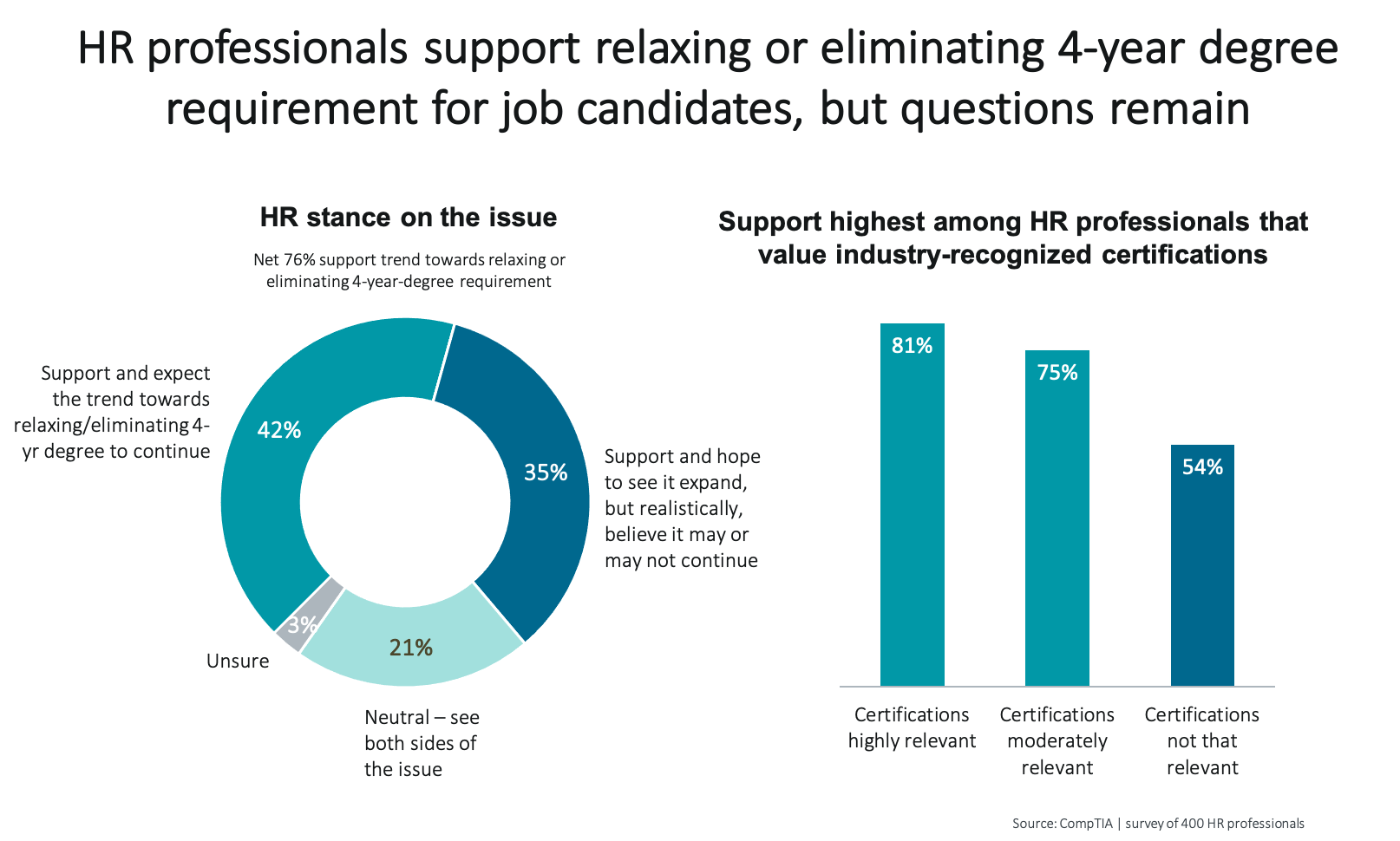
Automation is no longer just a tool. Human-AI hybrid team models are emerging, and workers will have to be both more creative about collaborating with AI and more analytical about what the AI is creating.
Over 80% of respondents in CompTIA’s survey expect AI to have either a moderate or significantly increased impact on HR in the year ahead, and people in senior roles were much more likely to say it will have a significant impact. A majority of companies are either piloting or actively using AI in candidate screening, onboarding, competency assessment and career planning.
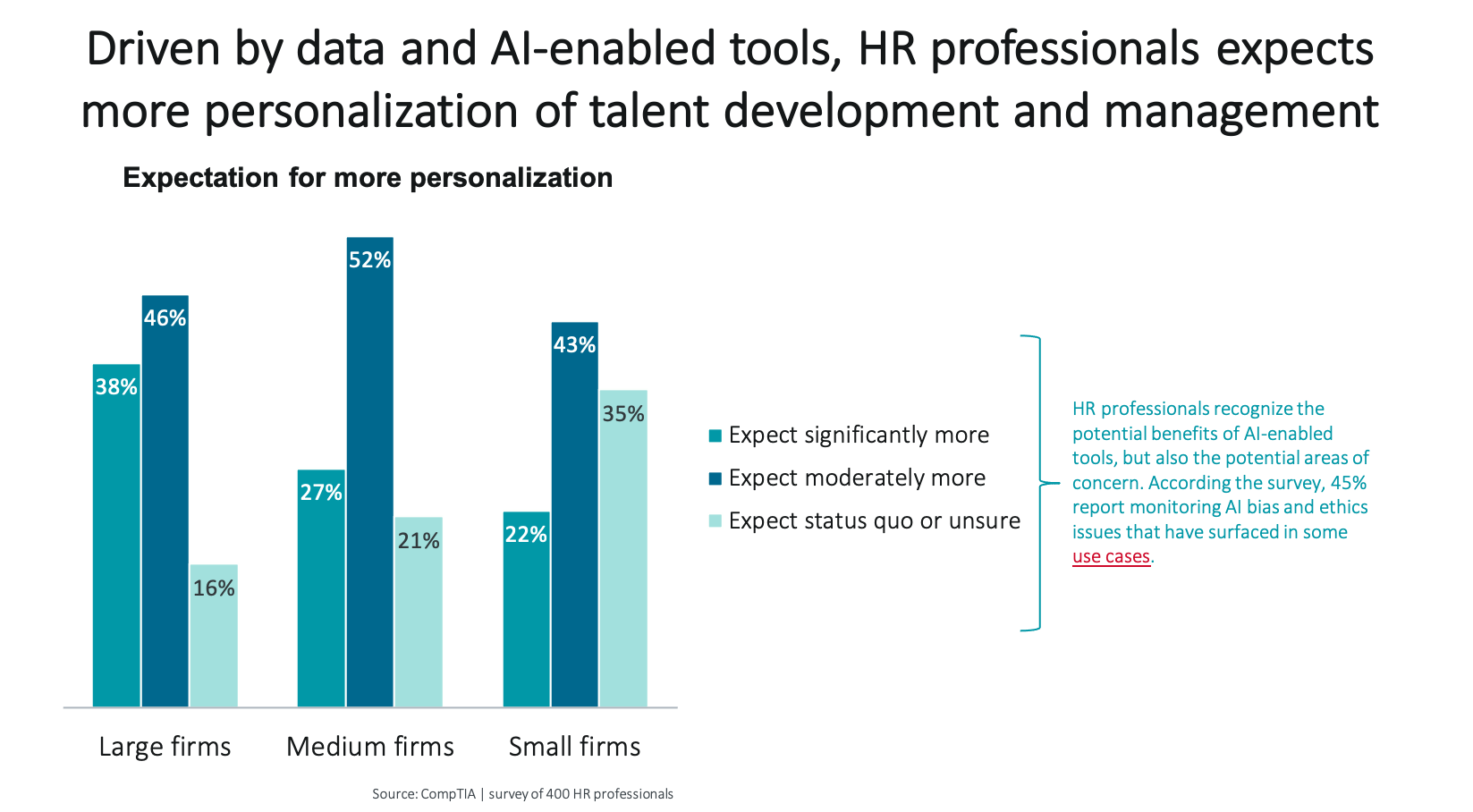
View full report for more detail.